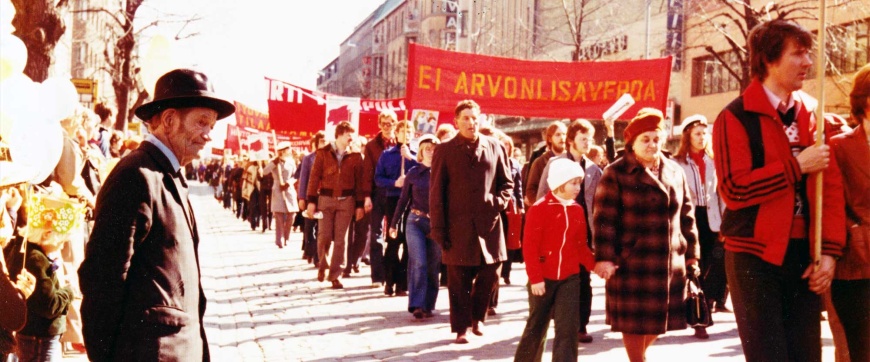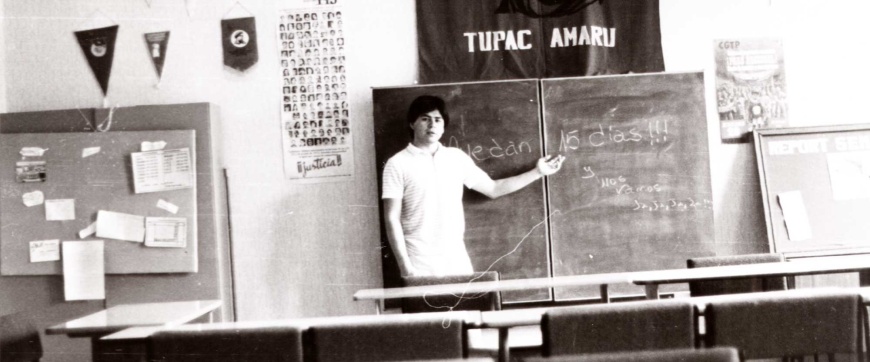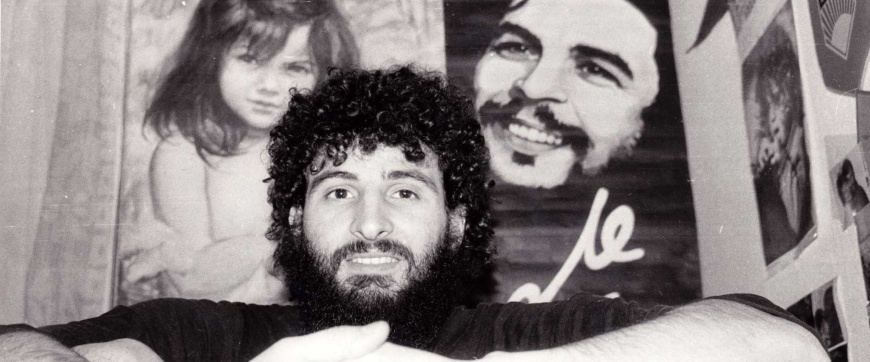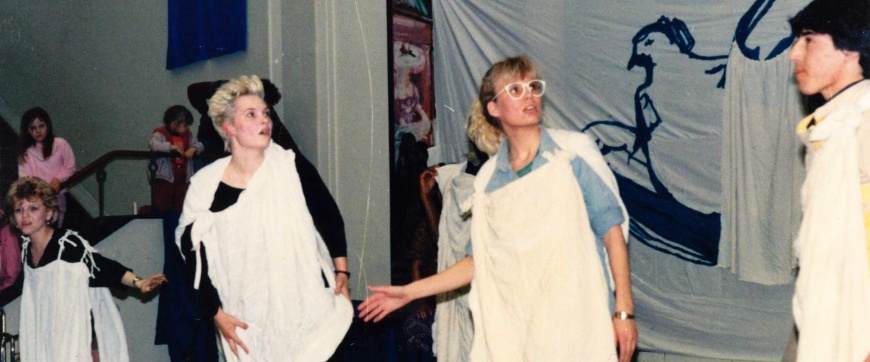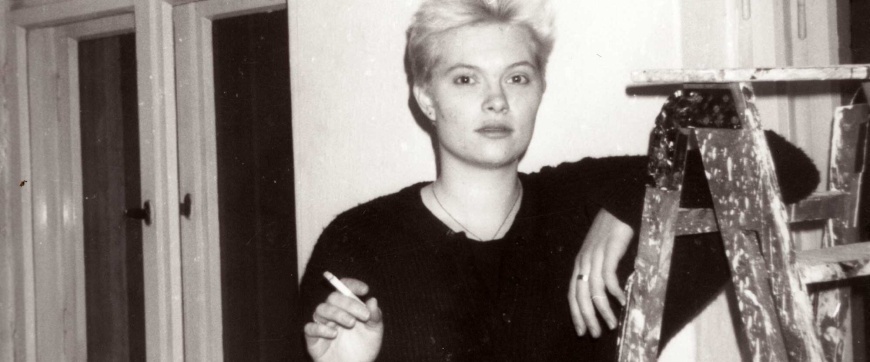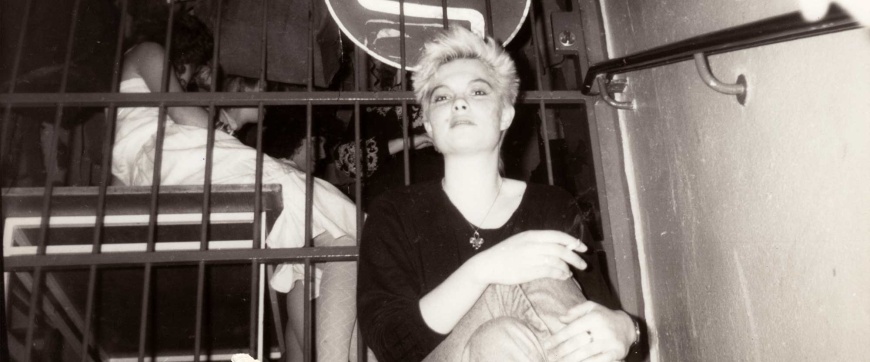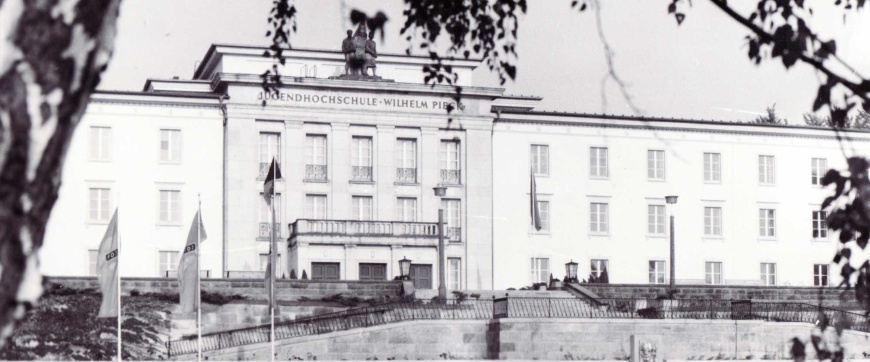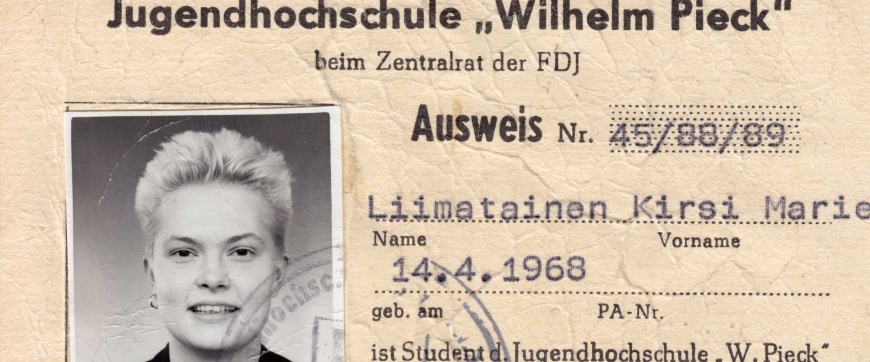Protagonists
LUCIA, Bolivian Delegation
In Bolivia Kirsi meets Nidia, who used to study in the GDR and Bogensee under the alias Lucia. Today Nidia is a secretary in an organisation of traditional healers in her hometown Cochabamba. Just as she previously worked in the leadership of the young communists, her profession is now that of a traditional healer. The cultural rights of the indigenous people are her heart's desire of the present.
Nidia had placed great hope in the incumbent president of Bolivia, Evo Morales. To her disappointment, the socialist and indigenous Morales had acted against the will of her people. Together with major international corporations, he planned motorway construction through the rainforest. Kirsi meets with Nidia and her indigenous friends who were demonstrating against the president and, as a culmination of the trip, the doors of the presidential palace are opened for the camera team. Nidia confronts the president…
ESTEBAN, Chilean Delegation
Together Kirsi and Nidia travel on to Chile to meet Esteban. After the end of the dictatorship he can use his real name, Marcelino, again. Marcelino still lives in the same working-class district in the capital Santiago de Chile and works together with his brother in his own car repair shop. Although he is finished with the proletarian dictatorship and Marxism-Leninism, he sees the teachings of Marx as an important part of his own social work. He still believes today that his involvement in the Communist Party makes sense. The camera team is allowed to follow Marcelino's political work very closely as he and his friends carry out a banned poster campaign in nocturnal Chile, just like in the days of the dictatorship.
NABIL, Lebanese Delegation
Kirsi and Nabil only meet again after 24 years. Both had lived in Berlin for many years without knowing about each other. They decide to fly together to Lebanon to find their former fellow student Ghazwan.
Nabil's whole family from the city of Tripoli had previously belonged to the Communist Party. The disappointment of the socialist system of the Soviet Union and the GDR, however, had changed their minds. The fact that the party was also involved in the civil war in Lebanon was another reason why they distanced themselves from the party.
GHAZWAN, Lebanese Delegation
When Kirsi and Nabil meet Ghazwan, he confirms that these were the reasons why he too was no longer a member of the party. But where Nabil completely distanced himself from socialist ideology, Ghazwan still believes in it today. He had called for a secular, leftist revolution throughout the Middle East. Especially in his home town, Sour, which belonged to the Hezbollah region, everyday life was dominated by religion.
The harsh reality in Lebanon, however, is that many former Communists now march in the ranks of Hezbollah and other religious parties. Between different sects and groups, dialogues are being conducted in Lebanon with weapons. The camera team becomes an eyewitness to a fierce shoot-out between two groups in broad daylight, right next to a picnic spot where many families were about to spend their day off with their children.
DUMA, Delegation of the ANC
The ANC, the liberation movement in South Africa and its struggle against the apartheid regime in South Africa, was important to Kirsi as a youth. At Bogensee School, she also met a young man with the code name Duma. Equipped with two photos of him, Kirsi travels to South Africa. In the capital Johannesburg she is passed on from one person to the next. She learns that the country's Communist Party and the liberation movement used to work closely together with support from the GDR. Today, many no longer want to talk about this delicate cooperation and it is difficult to find a trace of the former liberation fighters, as they often used several aliases and changed their identity cards like their shirts.
It turns out that Kirsi had arrived in South Africa too late. She meets Duma's wife at the cemetery and visits the long dead Duma. His real name was Themba. His hope of a free South Africa was fulfilled, but the gap between rich and poor is still enormous in South Africa today.


